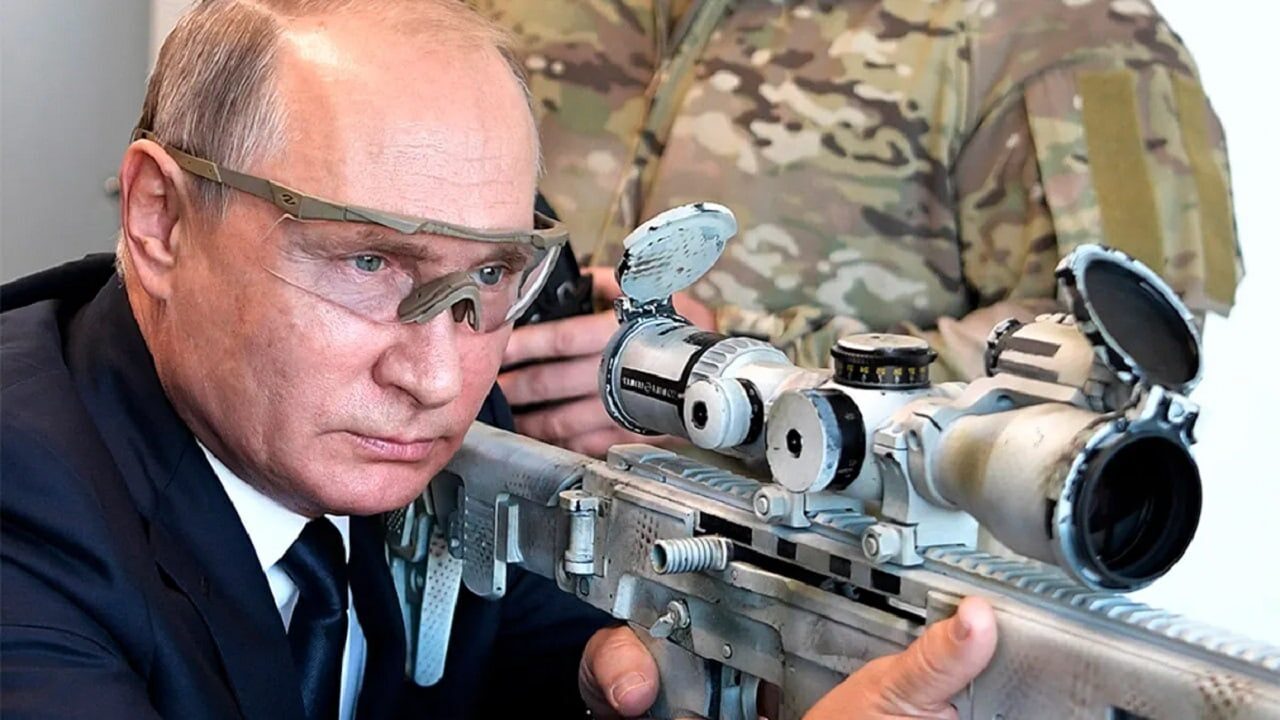The U.S. intelligence community has spoken: Russian President Vladimir Putin was recently treated for “advanced cancer”. Inasmuch as America’s spies correctly predicted Russia’s war against Ukraine, there is no reason to disbelieve this assessment.
What Putin’s illness means is another matter.
It may or may not make him more truculent, more fanatical, more violent. He may or may not die soon. His illness may or may not make him less competent to lead a country the size of Russia.
What we can state with certainty is that Russia’s elites know he’s ill and that a power struggle has already broken out or will soon break out. Who succeeds Putin is now the question that, willy-nilly, will inform all elite behavior and choice of policies.
We also know that replacing Putin while maintaining the system he constructed intact will be very difficult. Russia is fascist, and Putin is the hub that keeps the spokes and, thus, the wheel together. His departure, which may now be considered to be imminent, will create more than a power vacuum that his closest cronies will attempt to fill. It will shake to its foundations the fascist regime. Nazi Germany was unthinkable without Adolf Hitler; so, too, fascist Italy depended on Benito Mussolini for its coherence and existence.
Putin has spent over two decades painstakingly dismantling Russia’s nascent democratic institutions and replacing them with a highly centralized, personalistic dictatorship that derived much of its legitimacy from the personality cult he constructed for himself. That cult represented Putin as the embodiment of masculine vigor. His physical strength presaged and symbolized Russia’s strength. By the same token, a declining Putin would appear to herald Russia’s decline.
His cronies will have to either replace Putin with a dictator of similar vigor, charisma, and popularity—which is probably impossible given the age and physical unattractiveness of these men—or try to tinker with the system in such a way as to make it more amenable to rule by a weaker man. That, too, will be difficult, inasmuch as the Putin system consists of coherent institutions that “fit” according to the logic of dictatorship. It will be hard to replace parts without at the same time affecting the stability of the whole.
Putin’s successors will, like Lenin’s and Stalin’s, probably divide into hard- and soft-liners. In normal circumstances of relative political and economic stability, who would win would be a toss-up. But conditions in today’s Russia are anything but normal. The economy is in freefall thanks to Western sanctions. And the war against Ukraine is almost certain not to end in a Russian victory.
Other things being equal—and of course, they never are—these conditions will favor a soft-liner willing to embark on some reforms, end the war, and repair relations with the West. Putin’s comrades know this and are probably planning their next moves accordingly. Hard-liners probably understand that the longer Putin remains in power and the economy and war continue to deteriorate, the worse are their chances. Coups are now not just thinkable, but probably even inevitable—especially as the U.S. intelligence community also affirmed that Putin was the target of an assassination attempt in March.
With a power struggle taking place in the Kremlin, Moscow’s ability to manage its far-flung realm will inevitably decline. The provinces, and especially those associated with non-Russian nations with proud histories and ample resources, could easily begin jockeying for greater autonomy. If things really go badly in the Kremlin, attempts at independence become likely.
Whatever the scenario, and regardless of who wins the power struggle and how long Putin remains in charge, there is nothing the West can do to alter the course of events in Russia. The temptation to support Putin and the status quo will be as strong now as the temptation to support Mikhail Gorbachev and his status quo was on the eve of the Soviet Union’s collapse. But whatever we do will have at best a negligible effect on Russia’s internally generated tensions.
All the United States can realistically do is prepare for the power struggle, recognize that Russia is likely to become a very unstable place very soon, and reinforce its ties to Russia’s immediate neighbors, who, for better or for worse, will have to bear the brunt of Russia’s descent into instability.
Dr. Alexander Motyl, now a 1945 Contributing Editor, is a professor of political science at Rutgers-Newark. A specialist on Ukraine, Russia, and the USSR, and on nationalism, revolutions, empires, and theory, he is the author of 10 books of nonfiction, including Pidsumky imperii (2009); Puti imperii (2004); Imperial Ends: The Decay, Collapse, and Revival of Empires (2001); Revolutions, Nations, Empires: Conceptual Limits and Theoretical Possibilities (1999); Dilemmas of Independence: Ukraine after Totalitarianism (1993); and The Turn to the Right: The Ideological Origins and Development of Ukrainian Nationalism, 1919–1929 (1980); the editor of 15 volumes, including The Encyclopedia of Nationalism (2000) and The Holodomor Reader (2012); and a contributor of dozens of articles to academic and policy journals, newspaper op-ed pages, and magazines. He also has a weekly blog, “Ukraine’s Orange Blues.”

